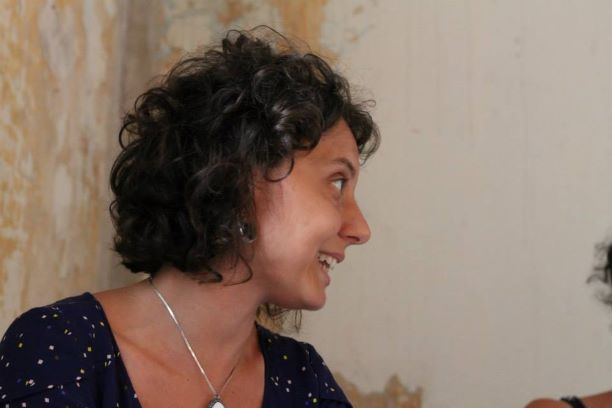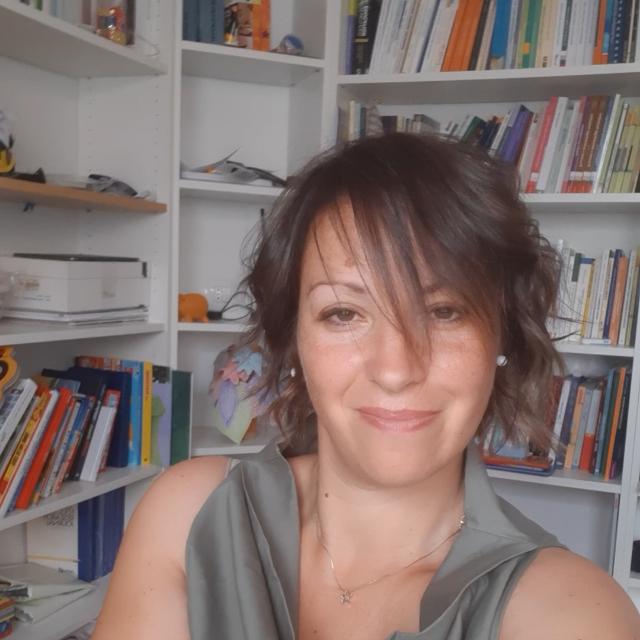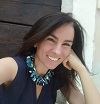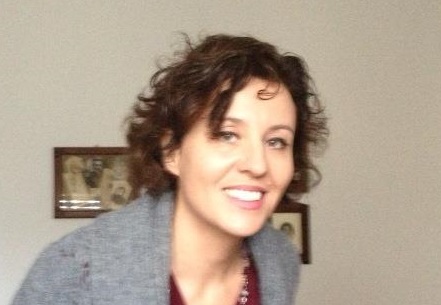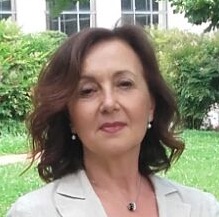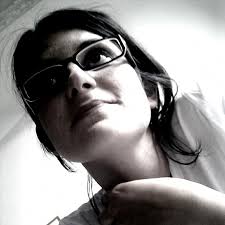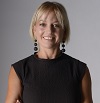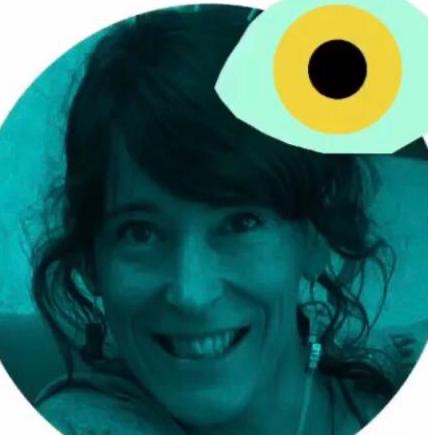Studying at the University of Verona
Here you can find information on the organisational aspects of the Programme, lecture timetables, learning activities and useful contact details for your time at the University, from enrolment to graduation.
Academic calendar
The academic calendar shows the deadlines and scheduled events that are relevant to students, teaching and technical-administrative staff of the University. Public holidays and University closures are also indicated. The academic year normally begins on 1 October each year and ends on 30 September of the following year.
Course calendar
The Academic Calendar sets out the degree programme lecture and exam timetables, as well as the relevant university closure dates..
| Period | From | To |
|---|---|---|
| Sem. 1A | Sep 23, 2019 | Oct 31, 2019 |
| Sem. 1B | Nov 11, 2019 | Jan 11, 2020 |
| Sem. 2A | Feb 17, 2020 | Mar 28, 2020 |
| Sem. 2B | Apr 6, 2020 | May 30, 2020 |
| Session | From | To |
|---|---|---|
| Sessione d'esame invernale | Jan 13, 2020 | Feb 15, 2020 |
| Sessione d'esame estiva | Jun 3, 2020 | Jul 25, 2020 |
| Sessione d'esame autunnale | Aug 24, 2020 | Sep 19, 2020 |
| Session | From | To |
|---|---|---|
| Sessione di laurea estiva | Jul 6, 2020 | Jul 11, 2020 |
| Sessione di laurea autunnale | Nov 2, 2020 | Nov 6, 2020 |
| Sessione di laurea invernale | Apr 7, 2021 | Apr 13, 2021 |
| Period | From | To |
|---|---|---|
| Festa di Ognissanti | Nov 1, 2019 | Nov 1, 2019 |
| Chiusura Ateneo | Nov 2, 2019 | Nov 2, 2019 |
| Festa dell'Immacolata | Dec 8, 2019 | Dec 8, 2019 |
| Vacanze di Natale | Dec 23, 2019 | Jan 6, 2020 |
| Vacanze di Pasqua | Apr 10, 2020 | Apr 14, 2020 |
| Festa della liberazione | Apr 25, 2020 | Apr 25, 2020 |
| Festa del lavoro | May 1, 2020 | May 1, 2020 |
| Sospensione delle lezioni | May 2, 2020 | May 2, 2020 |
| Festa del Santo Patrono | May 21, 2020 | May 21, 2020 |
| Sospensione delle lezioni | May 22, 2020 | May 23, 2020 |
| Festa della Repubblica | Jun 2, 2020 | Jun 2, 2020 |
| Vacanze estive | Aug 10, 2020 | Aug 15, 2020 |
Exam calendar
Exam dates and rounds are managed by the relevant Humanistic Studies Teaching and Student Services Unit.
To view all the exam sessions available, please use the Exam dashboard on ESSE3.
If you forgot your login details or have problems logging in, please contact the relevant IT HelpDesk, or check the login details recovery web page.
Should you have any doubts or questions, please check the Enrollment FAQs
Academic staff
 marialivia.alga@univr.it
marialivia.alga@univr.it
 erika.branchini@univr.it; erika.branchini@gmail.com
erika.branchini@univr.it; erika.branchini@gmail.com
 simona.carta@univr.it
simona.carta@univr.it
 marialuisa.costantino@univr.it
marialuisa.costantino@univr.it
 donato.desilvestri@univr.it
donato.desilvestri@univr.it
 laura.fontecedro@univr.it
laura.fontecedro@univr.it
Ganzerla Luca Giovanni Michelangelo
 lucagiovanni.ganzerla@univr.it
lucagiovanni.ganzerla@univr.it
 licia.landi@univr.it
licia.landi@univr.it

Migliorati Lorenzo
 lorenzo.migliorati@univr.it
lorenzo.migliorati@univr.it
 045802 8135
045802 8135
 maria.mori@univr.it
maria.mori@univr.it
 luca.odini@univr.it
luca.odini@univr.it
 alessandro.ongaro@univr.it
alessandro.ongaro@univr.it
 pieralberto.porcedducilione@univr.it; pierre_pordd@yahoo.it
pieralberto.porcedducilione@univr.it; pierre_pordd@yahoo.it
 045 8028732
045 8028732
 sara.riggio@gmail.com
sara.riggio@gmail.com
 mirela.tingire@univr.it
mirela.tingire@univr.it
 rosanna.vit@univr.it
rosanna.vit@univr.it
 barbara.zoccatelli@unitn.it
barbara.zoccatelli@unitn.it
Study Plan
The Study Plan includes all modules, teaching and learning activities that each student will need to undertake during their time at the University.
Please select your Study Plan based on your enrollment year.
1° Year
| Modules | Credits | TAF | SSD |
|---|
2° Year activated in the A.Y. 2020/2021
| Modules | Credits | TAF | SSD |
|---|
3° Year activated in the A.Y. 2021/2022
| Modules | Credits | TAF | SSD |
|---|
| Modules | Credits | TAF | SSD |
|---|
| Modules | Credits | TAF | SSD |
|---|
| Modules | Credits | TAF | SSD |
|---|
| Modules | Credits | TAF | SSD |
|---|
Legend | Type of training activity (TTA)
TAF (Type of Educational Activity) All courses and activities are classified into different types of educational activities, indicated by a letter.
Perspectives in early childhood education (2020/2021)
The teaching is organized as follows:
LABORATORIO DI PEDAGOGIA DELLA PRIMA INFANZIA
Credits
1
Period
See the unit page
Academic staff
See the unit page
Learning outcomes
Knowledge and understanding Module 1: Early childhood education 1. At the end of the course the students will possess the knowledge of the roots and the main conceptual references of the early childhood education, with particular focus on the concept of care. 2. Students will know the essential elements of the Italian and European services for early childhood (0-3). 3. Students will have developed an adequate understanding of the critical issues concerning the meaning of education in the 0-6 age range, starting from the analysis and elaboration of their images of child, family, learning, educational relationships. Module 2: Early childhood pedagogy laboratory 1. Students will have a deep understanding of the main theories and approaches in early childhood education. 2. Students will be able to identify and analyze their enactment and their connections with the developmental theories. Applying knowledge and understanding Module 1: Early childhood education 1, At the end of the course attendance, the students: will be able to outline a pedagogical analysis of educational practices and models in childcare services. 2. Students will be able to contextualize their educational intervention in relation to the needs of the child and the environment and to self-evaluate in the exercise of educational practice. Module 2: Early childhood pedagogy laboratory 1. The students will learn to use the pedagogical concepts and framework they have learned to assess a child’s learning process and to analyze educational environments and practices 2. The students will learn to use the pedagogical concepts and framework they have learned to interact with parents.
Program
------------------------
MM: PEDAGOGIA DELLA PRIMA INFANZIA
------------------------
Knowledge that you must have prior to attending the course (acquired in the first year): foundations and models of pedagogical theory, basic notions of developmental psychology, and history of early childhood education. The activities that contribute to the achievement of the learning goals are presented below. 1a. To consolidate the knowledge of the roots and of the main conceptual references of the pedagogy of childhood, with particular reference to the theme of care. The study of texts and the attendance of classes contribute to this goal. The handbook "presents the main concepts and authors of infant education and care, while the other texts offer a theoretical framework and guidelines for the practice of care. 1b. Know the essential elements of the Italian and European panorama on services for early childhood (0-3). This objective will be achieved in particular with the study of the book "Come progettare al nido" and the visit to the Loris Malaguzzi Center dedicated to the Reggio Approach. Furthermore, on the online platform, updated materials will be available on the topic "Infancy and Early Childhood Education and Care" in the European Union countries. 1c. Develop an adequate understanding of critical issues regarding the meaning of education in the 0-6 age range starting from the analysis and elaboration of their images of child, family, learning, educational relationships in childhood. During class, a space will be dedicated to the discussion of representations and mental models that students use to understand and interpret the world of children and the role of educational figures. These activities are aimed at promoting awareness of how some rooted assumptions guide practices and solicit a critical approach to stereotypical representations of children, families, educational relationships, and learning. Furthermore, the books support the achievement of this objective, always making explicit the connection between models and practices and dedicating space to the theme of continuing education, reflexivity and supervision in educational work with children. 2a. To be able to analyze educational practices and models in childcare services from a pedagogical point of view. In particular, during the lessons and field visits, particular attention will be paid to the development of observational skills oriented to understand the spaces, the objects, the gestures of the educational figures and to read and deepen their meanings and motivations in relation to theories and models. Educational. 2b. To know how to contextualize one's educational intervention in relation to the needs of the child and the environment and self-evaluate in the exercise of the educational practice. During the lessons there will be moments of work in groups and discussion on concrete cases that will contribute to enhance the reflexive, planning and evaluative skills and to put each and every one in the conditions of experimenting in a protected and non-judgmental space the processes of thought, comparison and decision-making that take place in educational practice. The cases will also be available on the platform in order to allow those who do not attend but are interested to have tools for experiencing reflection on practice.
------------------------
MM: LABORATORIO DI PEDAGOGIA DELLA PRIMA INFANZIA
------------------------
The students will be involved and facilitated in processes of critical analysis and discussion on ECEC contexts, models and practices. The main stimuli will be videos, pictures, meetings with key informants, fieldwork visits particularly on the main topics: - implicit and explicit curriculum - the relationship with families - routines and care - contexts and objects for exploration - cultural differences - gender stereotypes
Bibliography
| Author | Title | Publishing house | Year | ISBN | Notes |
|---|---|---|---|---|---|
| Donata Ripamonti, Paola Tosi | Momenti di cura | Junior | 2013 | ||
| Arianna Lazzari, Giulia Pastori, Chiara Sità, Paolo Sorzio | Prospettive educative per i servizi 0-6 | Junior | 2020 |
Examination Methods
------------------------
MM: PEDAGOGIA DELLA PRIMA INFANZIA
------------------------
The exam is based on a written test with different types of question (multiple choice, open-ended, analysis of pictures and professional writing...). The test provides evaluation on content knowledge, conceptual understanding, analytic skills.
------------------------
MM: LABORATORIO DI PEDAGOGIA DELLA PRIMA INFANZIA
------------------------
Students will be evaluated basing on a project work concerning one of the workshop's topics.
Type D and Type F activities
Modules not yet included
Career prospects
Module/Programme news
News for students
There you will find information, resources and services useful during your time at the University (Student’s exam record, your study plan on ESSE3, Distance Learning courses, university email account, office forms, administrative procedures, etc.). You can log into MyUnivr with your GIA login details: only in this way will you be able to receive notification of all the notices from your teachers and your secretariat via email and soon also via the Univr app.
Graduation
Documents
| Title | Info File |
|---|---|
|
|
pdf, it, 99 KB, 13/10/23 |
|
|
pdf, it, 101 KB, 10/04/24 |
List of theses and work experience proposals
| theses proposals | Research area |
|---|---|
| Ambienti e contesti di lavoro con minori | Various topics |
| Analisi dei personal network di sostegno | Various topics |
| comunicazioni relative alla tesi | Various topics |
| Il teatro come contesto educativo | Various topics |
| I processi di globalizzazione culturale nella società contemporanea | Various topics |
| La social network analysis applicata allo studio dei contesti educativi | Various topics |
| L'educatore ed i progetti europei | Various topics |
| L'impegno associativo in ambito educativo | Various topics |
| Politiche sociali e contesti educativi | Various topics |
| Progetti di collaborazione con le istituzioni scolastiche | Various topics |
| PROPOSTE TESI AMBITO GEOGRAFICO | Various topics |
| Scuola e capitale sociale | Various topics |
Linguistic training CLA
Gestione carriere
Student mentoring
Practical information for students
Documents
| Title | Info File |
|---|---|
|
|
pdf, it, 325 KB, 02/05/23 |
|
|
pdf, it, 212 KB, 02/05/23 |
|
|
pdf, it, 131 KB, 02/05/23 |
Stage e Tirocini
Le ulteriori attività formative (crediti F) sono interamente coperte dall’attività di tirocinio “indiretto” (1 cfu) da svolgersi nel secondo anno e di tirocinio “diretto” (14 cfu) da svolgersi presso enti convenzionati per un numero complessivo di 15 cfu (375 ore). Chi è iscritta/o al curriculum servizi per l’infanzia è tenuta/o a svolgere il tirocinio presso nidi e servizi per la prima infanzia per almeno il 50% delle ore.
Il tirocinio professionalizzante (375 ore, pari a 15 cfu), è obbligatorio sia nella sua forma diretta che indiretta.
Il tirocinio indiretto, della durata di 25 ore a frequenza obbligatoria al 75%, si svolge in Università per 20 ore e in forma di lavoro individuale per 5 ore e consiste in un accompagnamento iniziale delle/degli studenti da parte dei tutor attraverso un percorso formativo dotandoli di conoscenze e strumenti adeguati a osservare, comprendere e rielaborare criticamente l’esperienza di tirocinio nei servizi educativi e ad affrontare il tirocinio negli enti con metodo e consapevolezza. Il percorso, da attuare in gruppi da 20-25 persone sotto la supervisione di un tutor, risponde alle esigenze costantemente espresse sia dalle/dagli studenti stessi sia dalle parti sociali che dai referenti degli enti convenzionati.
Il tirocinio diretto si propone di raggiungere i seguenti obiettivi:
- fare esperienza diretta di attività professionali, che richiedono un livello di preparazione al lavoro educativo;
- approfondire in particolare il rapporto tra preparazione teorica, acquisita mediante lo studio, ed esperienza pratica, tra mondo del sapere e della cultura e mondo del lavoro e delle professioni;
Al termine del tirocinio diretto lo studente deve presentare una relazione scritta, nella modalità concordata con il tutor accademico.
Nuove Linee Guida per il tirocinio di Scienze dell'educazione.
- Tutte le informazioni in merito agli stage per futuri studenti sono disponibili alla pagina Stage e tirocini.
- Tutte le informazioni in merito agli stage per studenti iscritti sono pubblicate in MyUnivr - come fare per - stage e tirocini.
- Tutte le informazioni in merito agli stage per le aziende sono disponili alla pagina Stage e tirocini per azienze.
Documents
| Title | Info File |
|---|---|
|
|
pdf, it, 302 KB, 16/07/21 |
